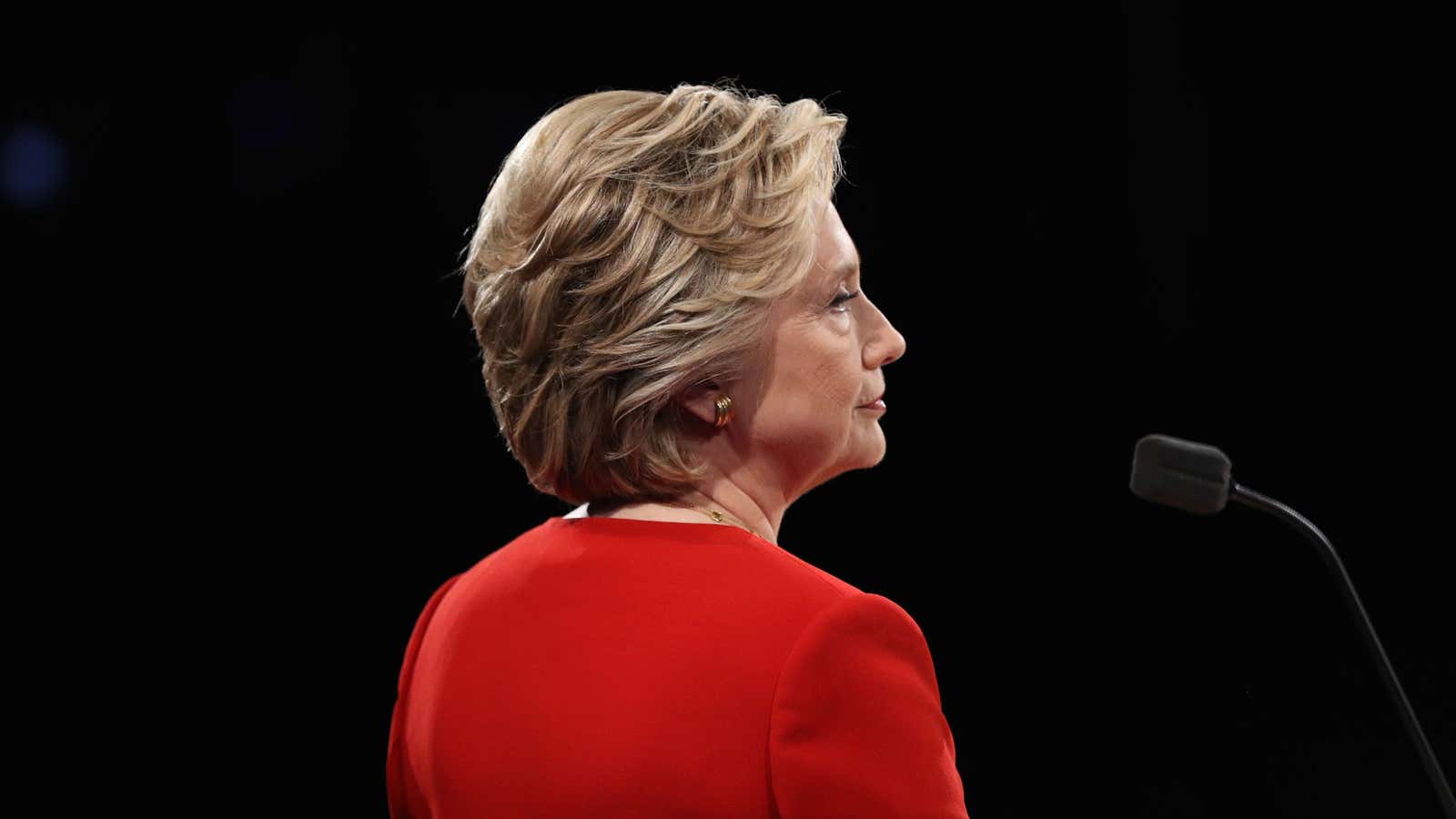US federal agents arrested Roger Stone, one of Donald Trump’s closest advisers on Friday (Jan. 25).
Stone is accused of lying to Congress and obstructing its investigation into Russian interference in the 2016 presidential election in a 24-page indictment unsealed by special counsel Robert Mueller, who is also looking into the Russian meddling. The document also suggests Stone was in touch with WikiLeaks, which released a trove of damaging material to Hillary Clinton’s presidential campaign.
The indictment claims Stone had numerous exchanges with a person linked to an unnamed group believed to be WikiLeaks. It also says that the person told Stone ahead of time when WikiLeaks was planning to publish the Clinton-related content.
Some of that content had to do with Clinton’s health, which became the subject of widespread conspiracy theories disseminated under the hashtag #HillaryHealth. According to the document, Stone was privy to the information right before it began to spread.
In an Aug. 2 exchange, Stone’s WikiLeaks contact suggested the group would start spreading rumors about Clinton, identified by her initials, HRC, and her fitness to be president. “Would not hurt to start suggesting HRC old, memory bad, has stroke,” the person tells Stone, according to the indictment. “I expect that much of next dump focus.”
Over the next days and weeks, a barrage of claims about Clinton’s health started circulating in right-wing news outlets, including Fox News, the National Inquirer, and Infowars. By the end of the month, they would end up in Trump speeches.
From the fringes
Rumors that Clinton was unwell had been circulating online for weeks under #HillaryHealth. But they received a big boost on Aug. 4, when Infowars started publishing stories on the topic, including one that falsely claimed she was recorded having seizures during an interview. That was just two days after Stone received the message.
The rumors soon spread to other right-wing news outlets. On Aug. 7, American Mirror and Drudge Report published a picture of Clinton being helped to walk up a flight of stairs. The Drudge piece mentioned Clinton’s “questionable health condition.”
Russian media also worked to spread the conspiracy theory. On Aug. 8, state-backed Russian news site RT mentioned the Drudge piece, saying it was fueling rumors about Clinton’s “bad health.” That same day, the National Enquirer published a piece about Clinton’s “secret health crisis.”
On the week of Aug. 8, the claims reached the mainstream. For days, Fox News host and Trump fan Sean Hannity vented the lies about Clinton’s health. In one show, he insinuated Clinton had seizures, presenting a picture that allegedly showed an aide carrying a Diazepam pen.
“Unhinged” and “unbalanced”
That same month, Trump and members of his campaign also started mentioning Clinton’s health.
On Aug. 6, four days after Stone received the tip from his contact, the Trump campaign released a strange video on Facebook that claimed Clinton was “short-circuiting.” The video showed the candidate misspeaking during speeches, and compared her to a broken robot.
The next day, Trump mentioned the video and raised questions about Clinton’s mental health during a rally, calling her “unhinged” and “unbalanced.” The following week, Trump said Clinton lacked “the physical and mental stamina” to fight the Islamic State.
On Aug. 18, Trump campaign spokesperson Katrina Pierson lied on MSNBC by saying that Clinton had dysphasia, a brain disease that impairs speech.
Central campaign issue
By the middle of August, the Washington Post was calling the claims about Clinton a “concerted effort” by Trump’s campaign “to pump up questions” about her health.
Clinton’s campaign was forced to respond. On Aug. 16, it issued a statement that called the statements and rumors “deranged.” It included a note from Clinton’s doctor, Lisa Bardack, saying the candidate was in “excellent health.”
Over the next weeks, the #HillaryHealth conspiracy theory became a major topic of the campaign, fanned by the fact that Clinton was reported to have pneumonia, and was seen almost fainting after attending a Sept. 11 memorial.
Respected news outlets started covering the Democratic candidate’s health closely. The New York Times asked for the “full disclosure” of Clinton and Trump’s health records, and asked doctors to debate her health.
